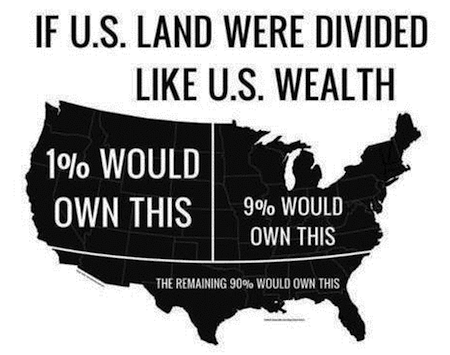I’ve been slow to get onto the income inequality bandwagon, but I try hard to let new information shape my beliefs, and since watching Richard Wilkinson’s TED talk on the issue I’ve started to change my opinion. And then along comes this interesting piece from self-described Austrian economist Roger Koppl hammering the point home: income inequality matters. (Austrian economists are the libertarian guys, by the way.)
I think Koppl makes good arguments, but I’m not holding my breath for the American right to take the lead on the issue any time soon. Momenutm can be a terrible thing, and in this case doubly-so. The rather uninformed, populist vision of income inequality from the American left will not be supplanted any time soon, and the knee-jerk antipathy of those on the right to the entire topic isn’t going away either.

I was kind of under the impression that income inequality already mattered to conservatives, but maybe not so much in mainstream politics. It seems like politicians fail to explain anything of substance time and time again, and we are often reduced to sound bites. Maybe the right tends to focus the conversation more on other things that may encompass and influence income, but avoid addressing individual income specifically. We definitely reject the notion that all incomes should be “equal” or “fair” or that we should be paid for our intrinsic “self worth” (whatever that is). The details behind those ideas rarely surface in conversation, though.
Ever since reading “Basic Economics”, I thought it was somewhat understood among conservatives that increased regulation, centralization of government, public schools, licensing, fees, etc., resulted in rent seeking, limiting and excluding competition, concentration of wealth in the politically powerful, and poorer conditions for the rest of the population. Hence an unjust and more extreme form of income inequality emerges, as opposed to a more just, efficient, and less harmful version of income inequality seen in something closer to a free market. But my impression might be skewed, since I haven’t had a lot of patience for mainstream political debate recently.
I don’t hear it come up very much myself, but… small sample size and all that.
I think that conservatives do talk about the plight of the poor in general, but not as often tying it specific to income inequality. The two aren’t quite identical.
You are right — When I reflect on actual discussion of income inequality, I mostly think of books or conversations I’ve had with professors, lawyers, etc. It’s not something that comes up in the usual right/left conversations of mainstream media, FB, or casual conversation, etc., unless someone from the left is throwing it out in an attempt to support their ideas.
Income inequality is important. Global markets have actually decreased global inequality (http://www.voxeu.org/article/parametric-estimations-world-distribution-income). However, I’m skeptical of Wilkinson. The Economist even said that his claims “have been largely debunked” (http://www.economist.com/node/21564421).